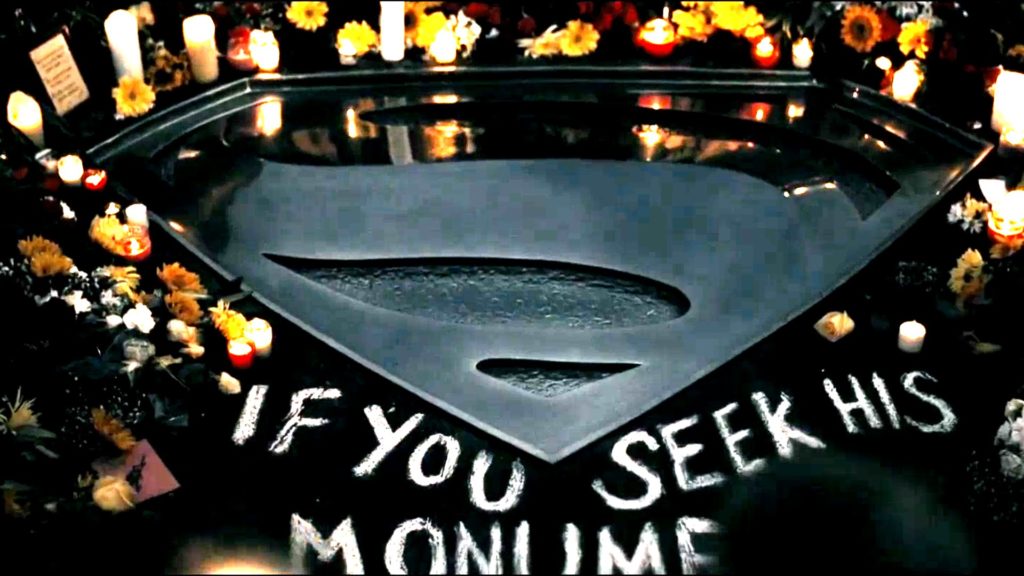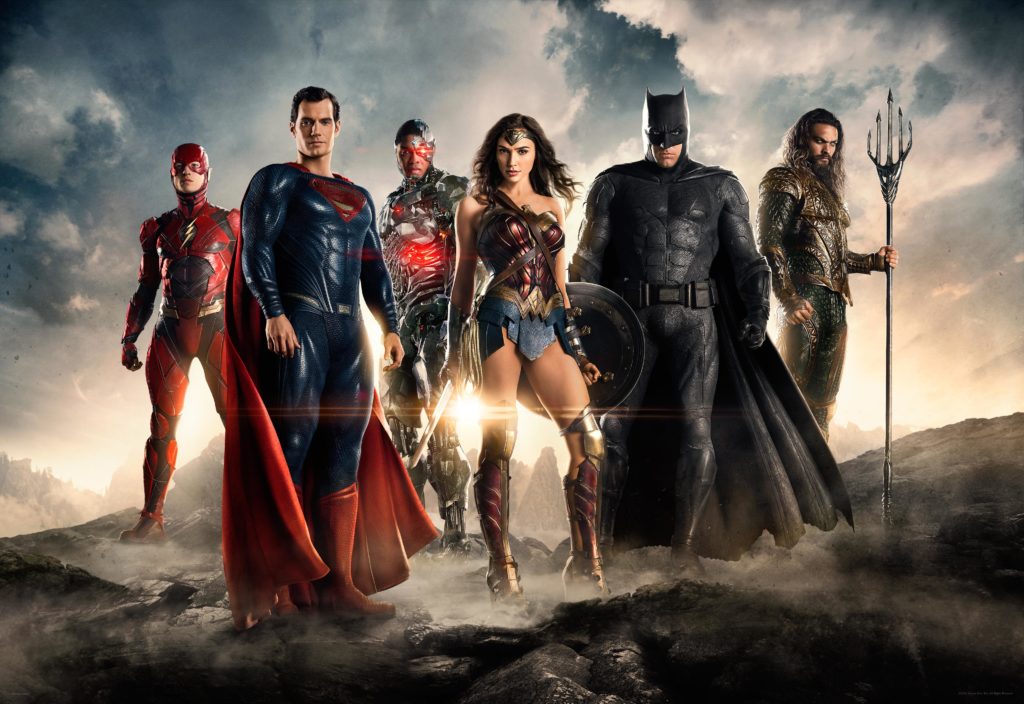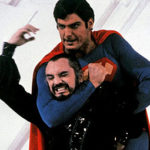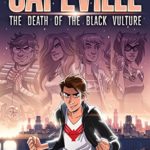Four More Ways To Fix The DC Film Universe
Welcome to all you new Wonder Woman fans. Whatever you felt about the other DC superhero films, we can unite around the awesomeness of this latest DC story, which stars Gal Gadot and Chris Pine, and is directed by the earnest and myth-minded Patty Jenkins.1
Perhaps before Wonder Woman arrived, you assumed wrongly that DC movies only want to be “grimdark” for darkness’s sake—and that sad Superman kills, and Batman turns evil.
If so, here’s hoping the well-reviewed, high-fantasy tale of undividedly heroic Diana, princess of Themyscira, has challenged your preconceptions a little bit.
Many DCEU (or DC Extended Universe) “truthers” have insisted this film series, from Man of Steel (MoS) to Batman v Superman (BvS), does not want to make superheroes all dark and nasty. Instead, as I said here, these super-stories clearly want to explore this challenge:
Who are good heroes, and why should they fight for a sinful world that does not deserve them?
So far, MoS and BvS have explored the question and offered only hints toward the answer.
But Wonder Woman does not attempt to “course correct” or “lighten” the DCEU as much as share another story, from another perspective. Its story asks the same question in a more accessible way—with words, not just images—and also begins to answer the question.
As I’ve mentioned, I hope future DCEU films will continue to follow this theme, even while following varied genres, characters, and secondary themes. I want to see these stories freed from genre constraints—such as “the world is an overall nice place that understands good heroes” or “you can kill people or destroy cities pretty much free of consequences.”
And I have four more wish-list items I have for Superman, Batman, Wonder Woman, and the entire Justice League universe I’ve been waiting to see on-screen for so long.
Naturally I will discuss some spoilers from at least three DCEU films.
5. Keep each hero’s musical themes absolutely consistent.
I wrote this before Wonder Woman even released, and was happy to hear Hans Zimmer’s already-famous warrior-rhythm theme for the heroine, now reprised and remixed by the new film’s composer, Rupert Gregson-Williams.
Zimmer himself composed for the whole Dark Knight trilogy and then did Man of Steel and half of Batman v Superman. For the latter two films, he used a simple consistent themes for Superman, and composer partner “Junkie XL” developed a new theme for Batman. Now that Zimmer is moving on, “Junkie XL” would have done Justice League.
But now … well, Danny Elfman is scoring Justice League. He’d also composed scores and soundtracks for Batman (1989) and Spider-Man (2002). He also partnered with Brian Tyler (my guess he was a late addition) for Avengers: Age of Ultron. And his addition concerns me.
I know. In the grand scheme of things, this is low priority. But I really, really like consistent musical themes throughout a visual story structure. Especially if they’re catchy themes.
So I hope, whatever Elfman does to add his own creativity to Justice League, that he also follows the established themes for Superman, Batman, and Wonder Woman. Sure, mix them up, or do a variation, as he did in Ultron with Alan Silvestri’s The Avengers theme. But don’t drop all the themes (like Marvel movies often do, ahem) as if they never existed.
6. When Superman returns, make sure he’s convincingly grown.
People complain a lot about Superman through both the films so far. They say he’s too sad or not heroic enough. They assume that because older Superman movies show the hero fully developed by the end credits, this film series should follow the same approach.

Superman will return.
But in fact, if many other DCEU “truthers” and myself are right, the DCEU films are still showing Superman’s origin story. And by doing this, they end up having the audience right where they want them: actually longing to seeing a fully-realized Superman onscreen again. You know, instead of just tolerating Superman, all “boring” and retro, a mascot and not a man—and not nearly as interesting as the “conflicted” heroes we thought we preferred.
No, the series isn’t simply holding out the goods to string along the fans. This is simply the practice of good storytelling: letting a hero struggle and try and fail, often for a good long while, before triumphing and becoming the hero we always knew he could be.
If I’m right, then, this may be the first superhero film series in which the “messianic” hero’s journey is over within the first three films. After this, Superman will indeed become the solid hero we suddenly realized we wanted all along: confident, morally certain, and fighting for truth, justice and the American way. Oh—and determined never to kill, not because Superman just somehow always knew this was terrible, but because (thanks to the impossible situation with General Zod), he had to do it once, and swore never to do it again.
Fortunately, Justice League’s promised return of Superman could give us all what we want to see—both the fans who disliked Superman in the earlier films, and demand a better Superman, and the people like me who have loved Superman’s character arc.
In either case, I say Superman’s return should help us all agree what the previous films were meant to do: show this man convincingly growing into his own symbol of hope.
Break a rule or two, and tell, not just show, what Superman was going through earlier.
Give him an awesome yet natural speech to his friends about what he’s learned.
Show gloriously his enhanced inner heroism as he helps lead the new Justice League.
Show him smiling. A lot. Let’s see him enjoy being a hero, even while facing new challenges and supervillains who can’t stand his pure-heartedness and try to break him!
7. Don’t let meme-heroes and popular misconception run the show.
 There are at least two types of Batman:
There are at least two types of Batman:
- Serious story Batman (with many variations)
- Meme-Batman (with at least three variations).
In the last week, two significant events happened in the world of Meme-Batman: The Lego Batman Movie released to Blu-ray, and we lost the original Meme-Batman, Adam West.
I like Meme-Batman, and play “Lego Batman” video games, and laugh at The Lego Batman Movie. But this Bat-version is not like an actual human person, and thus can’t qualify as “the best Batman.” This didn’t stop some overzealous Lego Batman Movie fans for claiming this was the “best Batman movie ever,” which is just plain silly. Sure, this movie shows Batman at his silliest and most infantile, pouting, self-absorbed, my-parents-are-DEAAAD silliest. It pokes fan at more-ridiculous fans, who insist that (paraphrased) “Batman is the awesomest superhero” who “doesn’t have any powers” and yet “literally scares the Grim Reaper.”
But man does not live by silly alone. Neither do major motion pictures. Which is why I hope Justice League, The Batman, and future DCEU Bat-stories keep the jokes to a minimum. We’ve heard it all: my parents are DEAAAD, secret identities are hackneyed, and Batman is really rich, because he’s Batman. Don’t stay there. Let Batman mature a little, and fight to recover his moral core—which is what the oft-maligned BvS actually showed him doing.

8. Proceed with absolute confidence in these heroic characters.
None other than Marvel Studios kingpin Kevin Feige shared his suggestions for the DC film series back in 2013, as the Marvel series began phase 2 and before Man of Steel released:
Man of Steel looks like it’s going to be awesome and obviously Dark Knight is awesome. [… DC filmmakers should] have confidence in the characters, believe in the source material, don’t be afraid to stay true to all of the elements of the characters no matter how seemingly silly or crazy they are.
To an extent, Marvel’s films have led the way here, only avoiding the silliest costumes and origin stories, but doing their best to stay somewhat realistic while honoring the source. Tony Stark really does build giant mecha suits he can summon remotely. Doctor Strange really does do mystic battle with a giant evil space head from another dimension.
Yet DC’s films have a lightly-tapped advantage: they can take these ideas more seriously, because (so far) they don’t feel they need to self-distract with Ironic Self-Aware Moments.
In fact, the closer these films approach the ideal of real-life seriousness, the more people feel compelled to mock or criticize them—such as when Jonathan Kent in Man of Steel sacrifices himself to preserve his adopted son from the world Apparently, people aren’t used to this kind of earnest storytelling. The problem isn’t that this isn’t realistic (after all, this scenario is pretty far-fetched). The problem is that people aren’t used to this level of “frame rate” that bends closer to reality. Apparently, this sight strains some viewers’ eyes.
Give these things dramatic weight—and hew closer to the even weightier themes of good and evil, heroism, moral strength vs. compromise, and even the truth behind ancient myth—and DC’s films can truly offer stories most moviegoers haven’t considered.
Wonder Woman gives me hope that DCEU will earnestly embrace the heroic nature of their nearly century-long meta-cast. From the moment of Diana’s clear-voiced introduction—the same as you hear in this trailer—this story tells you its own themes and invites you to see the world anew through her eyes. A generation ago, audiences nearly believed a man can fly. Now we can adopt the humility of children, and believe that a Superman can fly (and die, and rise), and the Batman can be redeemed from the dark vigilante’s logical fate, and that Diana can help teach them both a true vision of heroism preserved in the mythic past.
This story also gives Christians a delightful opportunity.
No, we shouldn’t write 12-part sermon series or breathless blog articles proclaiming that, hurrah, superheroes are Christian heroes, so Christians are actually cool in the world(!!!).
Nor should we be too cool and ignore the fact that Christianity does inform these stories.
Instead, we should see these heroes for what they are: Christ-figure-figures. They’re more like us, as we strive to be Christ-like heroes. And if we can stretch our hearts further, if we can “believe” in Superman, Batman, Wonder Woman, Aquaman, The Flash, Cyborg, and the entire Justice League—well, that’s good practice for believing in the true Hero of all heroes.









































Hi. I struggling with the “no killing” rule that most heroes have. In my mind, it would be better to kill off the bad guy once you realize he’s doing something horrible, like wanting to blow up the world. I’m thinking of Season 4 of Green Arrow. Honestly, if they would have killed off Dahrk when they had the chance when he lost his powers, a ton of people would not have died.
I know it’s a way to keep the story going an makes the hero a shining monument to morality. But in reality, if someone had a chance to take out the head of ISIS, let him live, he escaped and caused many more deaths, I and most people I know, would be really angry with the person who had the chance to take him out and didn’t.
Exactly, momofkings!
Back in 2005-ish, the comics had Jason Todd call Batman out on this, using the same logic you did, and while they ultimately portrayed Jason as being completely wrong, they were never able to actually refute his point; they just fell back on that old ‘if I kill them, what’s to stop me from becoming like them?’ garbage.